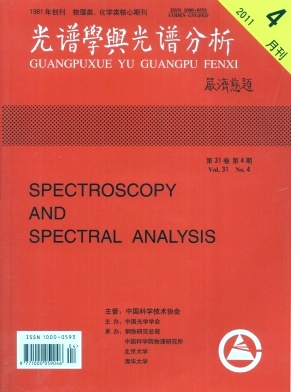麦秆添加大量CaO热解的TG-FTIR实验研究
[1] Ziock H J, Lackner K S, Harrison D P.Zero Emission Coal Power, a New Concept.The First National Conference on Carbon Sequestration, Washington, DC, USA, 2001.
[2] Rizeq R G, Lyon R K, Zamansky V M.Fuel-Flexible AGC Technology for H2, Power, and Sequestration-Ready CO2.The 26th International Technical Conference on Coal Utilization and Fuel Systems, Clearwater, Florida, USA, 2001.
[3] Lin S Y, Suzuki Y, Hatano H, et al.Energy and Fuels, 2001, 15(2): 339.
[4] WANG Qin-hui, SHEN Xun, LUO Zhong-yang, et al(王勤辉, 沈洵, 骆仲泱, 等).Power Engineering(动力工程), 2003, 23(5): 2711.
[5] Wang Z H, Zhou J H, Wang Q H, et al.International Journal of Hydrogen Energy, 2006, 31(7): 945.
[6] GUAN Jian, WANG Qin-hui, LUO Zhong-yang, et al(关键, 王勤辉, 骆仲泱, 等).Proceedings of the CSEE(中国电机工程学报), 2006, 26(9): 7.
[7] Youssef M A, Wahid S S, Mohamed M A, et al.Applied Energy, 2009, 86(12): 2644.
[8] Guan J, Wang Q H, Li X M, et al.Renewable Energy, 2007, 32(15): 2502.
[9] Florin N H, Harris A T.Chemical Engineering Science, 2008, 63(2): 287.
[10] Raveendran K, Ganesh A, Khilar K C.Fuel, 1995, 74(12): 1812.
[11] Nowakowski D J, Jones J M, Brydson R M D, et al.Fuel, 2007, 86(15): 2389.
[12] Wornat M J, Nelson P F.Energy & Fuels, 1992, 6(2): 136.
[13] Shimada N, Kawamoto H, Saka S.Journal of Analytical and Applied Pyrolysis, 2008, 81(1): 80.
[14] LU Yong-quan, DENG Zhen-hua(卢涌泉, 邓振华).Practical Infrared Spectroscopy Analysis(实用红外光谱解析).Beijing: Publishing House of Electronics Industry(北京: 电子工业出版社), 1989.
[15] Abu El-Rub Z, Bramer E A, Brem G.Industrial & Engineering Chemistry Research, 2004, 43(22): 6911.
[16] Jess A.Fuel, 1996, 75(12): 1441.
[17] Jia Y B, Huang J J, Wang Y.Energy & Fuels, 2004, 18(6): 1625.
韩龙, 王勤辉, 杨玉坤, 余春江, 方梦祥, 骆仲泱. 麦秆添加大量CaO热解的TG-FTIR实验研究[J]. 光谱学与光谱分析, 2011, 31(4): 942. HAN Long, WANG Qin-hui, YANG Yu-kun, YU Chun-jiang, FANG Meng-xiang, LUO Zhong-yang. TG-FTIR Study on Pyrolysis of Wheat-Straw with Abundant CaO Additives[J]. Spectroscopy and Spectral Analysis, 2011, 31(4): 942.




